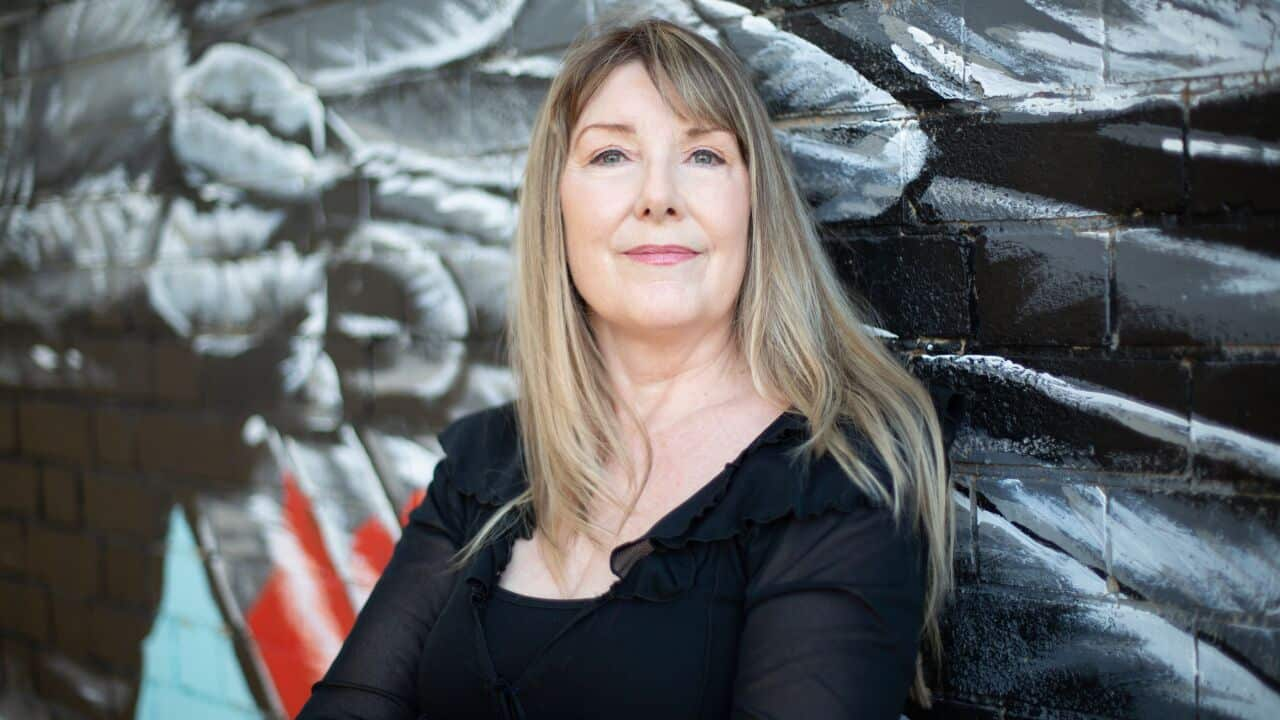Watch Insight's episode in collaboration with NITV, Recognising Our Past — how are we acknowledging our shared past and are we getting it right? On
One of my earliest childhood memories was the story of a seafaring ancestor.
My grandmother spoke of him proudly.
She told us he brought the first plough to Victoria on a ship named the Thistle. She also mentioned early settlers.
My grandmother never met her great-grandfather. He died before she was born. But his story lived on in our family mythology.

The Thistle, painted by Jack Louis Koskie Source: Supplied
History through song
Many years later while I was writing a book, another childhood memory returned to me.
Something my mother often sang. A song that resonated with the history I was exploring.
"Do you remember that song, the one about Taranaki?" I asked her.
"Of course!" she said.

An archive photo of Captain James Liddell. Source: Supplied
"Taranaki in New Zealand? So it’s not just a song you made up for fun. Your great-grandma was really born there?" I asked.
"Yes. She was born on board a ship. Her father was a sea captain," she said.
"The captain who brought the first plough to Victoria?"
"That’s right," my mother said. "But I don’t know very much about him."
The search began
I was determined to learn more.
Who was this mysterious sea captain who loomed so large in our family’s history?
There were clues on the internet about what was described as 'the settlement of Portland'.
I also found records of my ancestor's activities in various archives, including shipping records, manifests of ships cargo, and evidence compiled by other researchers.
It turned out my great-great-great-grandfather, our illustrious sea captain, was born in Scotland.
His name was Captain James Donaldson Liddell.

Katrina and her mother Zant Smith. Source: Supplied
He was promoted to officer on a brig trading between Sydney and New Zealand.
He even learned the Māori language.
When he was in Launceston, he was appointed master of the Thistle, a ship commissioned for sealing and trading ventures with the new Swan River Colony, Western Australia.
A dark past my grandmother didn't know about
On one of his return journeys to Launceston, according to his memoranda, he anchored the Thistle at Portland Bay, Victoria, and went ashore.
He had seen the site’s potential for a bay whaling station.
But not only this, he was so impressed with the fertility of the land, he 'took a sod of Portland soil to Launceston' to show the patriarch of the family destined to illegally settle and establish a farm there.
My grandmother was clearly unaware of our ancestor’s role in the theft of Gunditjmara land in Victoria.
Land that was never ceded.
Or about the by the whalers and the so-called 'settlers'.
Like me, I suspect she would have been shocked and disappointed to learn the disturbing truth of our inherited legacy.
Her story had been one of immense pride — a direct family link with Australia’s nation-building narrative.
She never mentioned First Nations people or my great-great-great-grandmother, the Irish convict our illustrious sea captain took as his wife in Sydney.
Yet another well-kept secret in the annals of our family’s history.
Coming to terms with a violent past
Learning that my ancestor had worked in the sealing and whaling industries was deeply concerning.
As a researcher and a writer, I was well aware of the appalling acts committed by sealers and whalers during this historical period, including the theft and exploitation of Aboriginal girls and women.
As captain of the Thistle, he regularly dropped gangs of sealers and whaleboats at islands along Australia’s southern coastline, including Kangaroo Island, where atrocities were known to have been committed.
When he called at the islands, he collected the harvested seal skins, so he must have spent time on shore. It is hard to believe he was unaware of the crimes being committed there.
I felt shame but not guilt
There was a drive to find out more, and when I began to look into my family history, I experienced vivid dreams of being led out of a Victorian house by a group of Indigenous elders.
Researching and analysing my ancestor’s role in the theft of Gunditjmara land in Victoria was confronting but also cathartic, I'd always felt let towards the mystery that surrounded my family history.
Uncovering it gave me a sense of purpose.
People have asked me if I feel guilty about this disturbing family legacy.
While I don’t feel personally responsible or guilty for the actions of my great-great-great-grandfather, I do feel a sense of inherited shame.
The theft of land that my ancestor helped facilitate led to massacres and frontier warfare, and the ongoing injustices experienced by First Nations People in Victoria.
I don’t want to shy away from the truth.
As a non-Indigenous Australian, I believe it is time to face our nation’s colonial past with honest and critical eyes.
We will become a more mature and inclusive nation by accepting and acknowledging these difficult truths - an Australia we can all be proud of.
From sex and relationships to health, wealth, and grief Insightful offers deeper dives into the lives and first-person stories of former guests from the acclaimed TV show, Insight.
Follow Insightful on the , , , or wherever you get you get your podcasts.
READ MORE

Insightful












